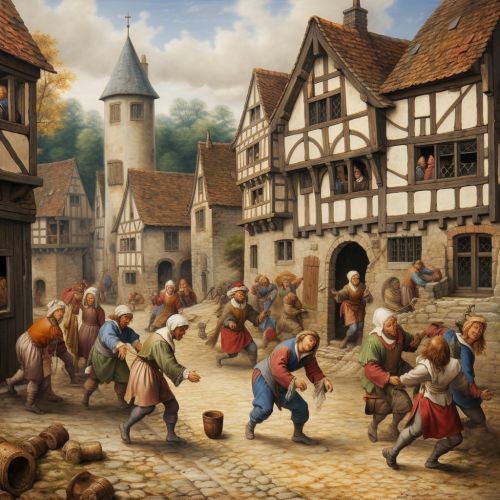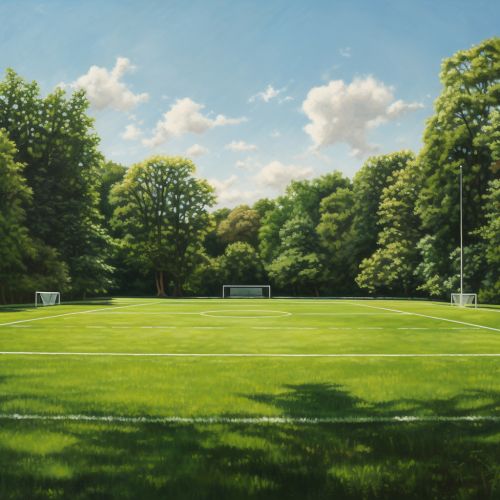Football
History
Football, known in some parts of the world as soccer, is a sport with a rich and diverse history. The game as we know it today has its origins in medieval England, but the concept of kicking a ball for sport dates back to ancient civilizations. Ancient civilizations such as China, Greece, and Rome all had games involving a ball and footwork, but these were often quite violent and bore little resemblance to modern football.


The first known rules of football were established in England in the 19th century. These rules, known as the Cambridge Rules, were adopted by the newly formed Football Association (FA) in 1863. The FA's rules became widely accepted and are considered the basis for the modern game.
Gameplay
Football is played between two teams of eleven players each, on a rectangular field with a goal at each end. The objective of the game is to score more goals than the opposing team by getting the ball into the opponent's goal. The ball can be moved by any part of the body except the hands and arms, except for the goalkeeper within their penalty area.


The game is divided into two halves of 45 minutes each, with a 15-minute half-time break. The team that scores the most goals by the end of the match is declared the winner. If the score is tied at the end of regulation time, the game may go into extra time or a penalty shootout, depending on the rules of the competition.
Rules and Regulations
The rules of football are governed by the International Football Association Board (IFAB). The IFAB consists of representatives from the four British football associations (England, Scotland, Wales, and Northern Ireland) and four representatives from FIFA, the international governing body for football.
The rules cover all aspects of the game, from the size and shape of the ball, the dimensions of the field, the number of players, the equipment they wear, to the way the game is played and officiated. Violations of these rules can result in penalties, ranging from free kicks and penalty kicks to yellow and red cards for more serious offenses.


Competitions
Football is played at various levels, from amateur to professional, and in many different formats. The most prestigious competition in football is the FIFA World Cup, which is held every four years and involves teams from all over the world. Other major international competitions include the UEFA Champions League, the Copa America, and the African Cup of Nations.
At the club level, there are numerous leagues and competitions around the world. The most popular leagues include the English Premier League, the Spanish La Liga, the Italian Serie A, and the German Bundesliga.


Influence and Impact
Football has a significant impact on society and culture. It is more than just a game; it is a global phenomenon that brings people together, transcends borders, and has the power to inspire and unite. It is also a major industry, generating billions of dollars in revenue each year through ticket sales, broadcasting rights, and merchandise.
Football has also been used as a tool for social change. Many organizations use football to promote social inclusion, gender equality, and youth development. The sport has also played a role in political and social movements, from the fight against apartheid in South Africa to the promotion of peace in conflict zones.


